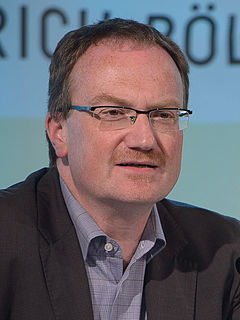A Quote by Zygmunt Bauman
The greatest economic minds of the 19th century, all of them without exception, considered economic growth as a temporary necessity. When all human needs are satisfied, then we will have a stable economy, reproducing every year the same things. We will stop straining ourselves worrying about development or growth. How naïve they were! One more reason to be reluctant about predicting the future. No doubt they were wiser than me, but even they made such a mistake!
Quote Topics
About
Century
Considered
Development
Doubt
Economic
Economic Growth
Economy
Even
Every
Exception
Future
Greatest
Growth
How
Human
Human Needs
Made
Man Needs
Me
Minds
Mistake
More
Necessity
Needs
No Doubt
Ourselves
Predicting
Predicting The Future
Reason
Reluctant
Reproducing
Same
Same Thing
Same Things
Satisfied
Stable
Stop
Temporary
Than
Them
Then
Things
Were
Will
Wiser
Without
Worrying
Year
Related Quotes
To change our national economic story from one of financial speculation to one of future growth, we need a third industrial revolution: a green revolution. It will transform our economy as surely as the shift from iron to steel, from steam to oil. It will lead us toward a low-carbon future, with cleaner energy and greener growth. With an economy that is built to last - on more sustainable, more stable foundations
Every single human being is creative and maximizing that creativity is critical to happiness and economic growth. Economic growth is driven by creativity, so if we want to increase it, we have to tap into the creativity of everyone. That's what makes me optimistic. For the first time in human history, the basic logic of our economy dictates that further economic development requires the further development and use of human creative capabilities. The great challenge of our time is to find ways to tap into every human's creativity.
The problem is, if at all, in the different view of the economy, of economic growth. Growth is too low, even for us. That needs to change: More investments, a stronger role by the European Central Bank. Otherwise, there are no tensions between Italy and Germany. But on this point, compromises must be reached and we will reach them.
From 2008 to 2016 all the growth in the American economy, all the growth in national income, was earned just by the wealthiest 5% of the population. So they got all the growth. 95% of the population didn't grow. If you can get a flat tax or other lower tax, as Trump is suggesting, then this richest 5% will be able to keep even more money. That means that the 95% will be even poorer than they were before, relative to the very top.
Over the longer term, China will grow by about 6% or 7% per year. The Chinese authorities usually react pretty quickly to unfolding economic events, and you've seen them recently change a whole bunch of policies to be more conducive to growth. They have the power and capability to macromanage the economy - to accomplish their growth objectives - which means they're pretty much going to come close to what they say is going to happen.
Without the heart to ground it and open it to who we really can be as human beings, the brain is a very dangerous machine. A machine that is saying: we've got to have economic growth; we've got to have unending economic growth, otherwise societies will collapse. And yet there should be something saying: wait a minute, this isn't going to work.
Some people continue to defend trickle-down theories which assume that economic growth, encouraged by a free market, will inevitably succeed in bringing about greater justice and inclusiveness in the world. This opinion, which has never been confirmed by the facts, expresses a crude and naive trust in the goodness of those wielding economic power and in the sacralized workings of the prevailing economic system.





































